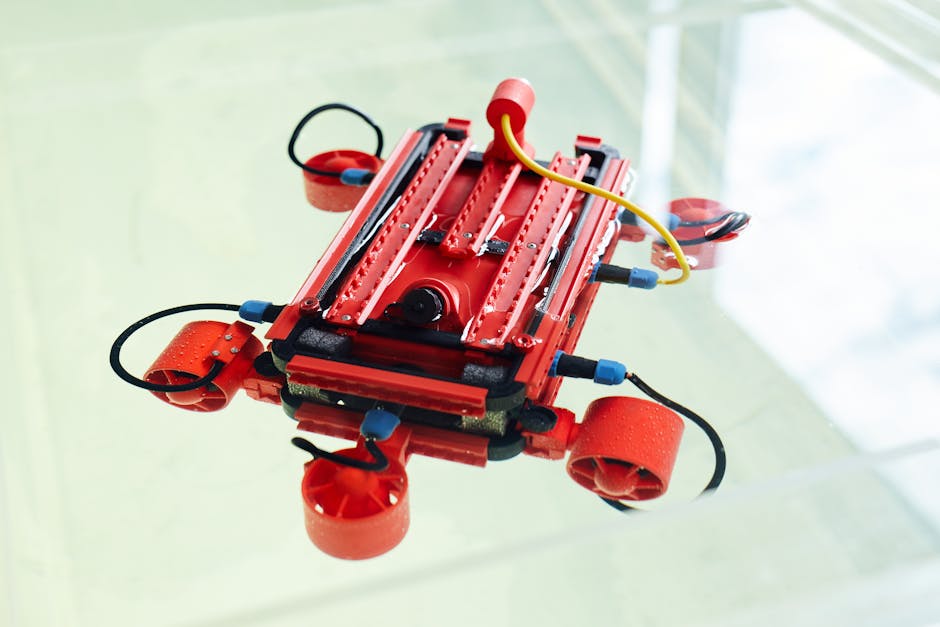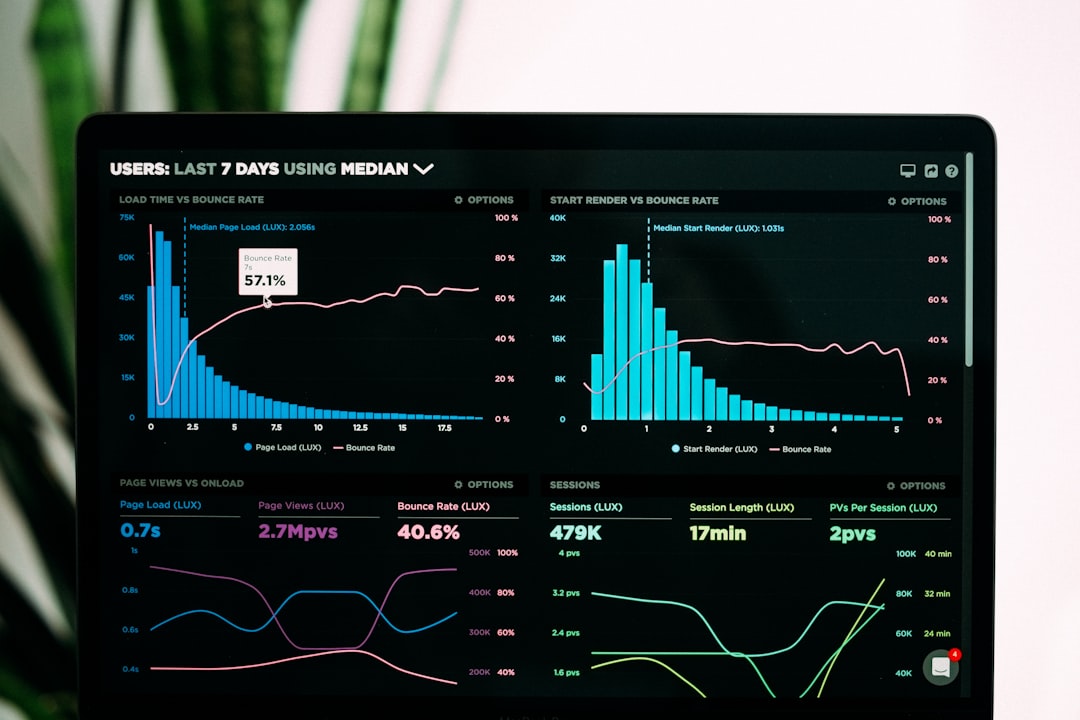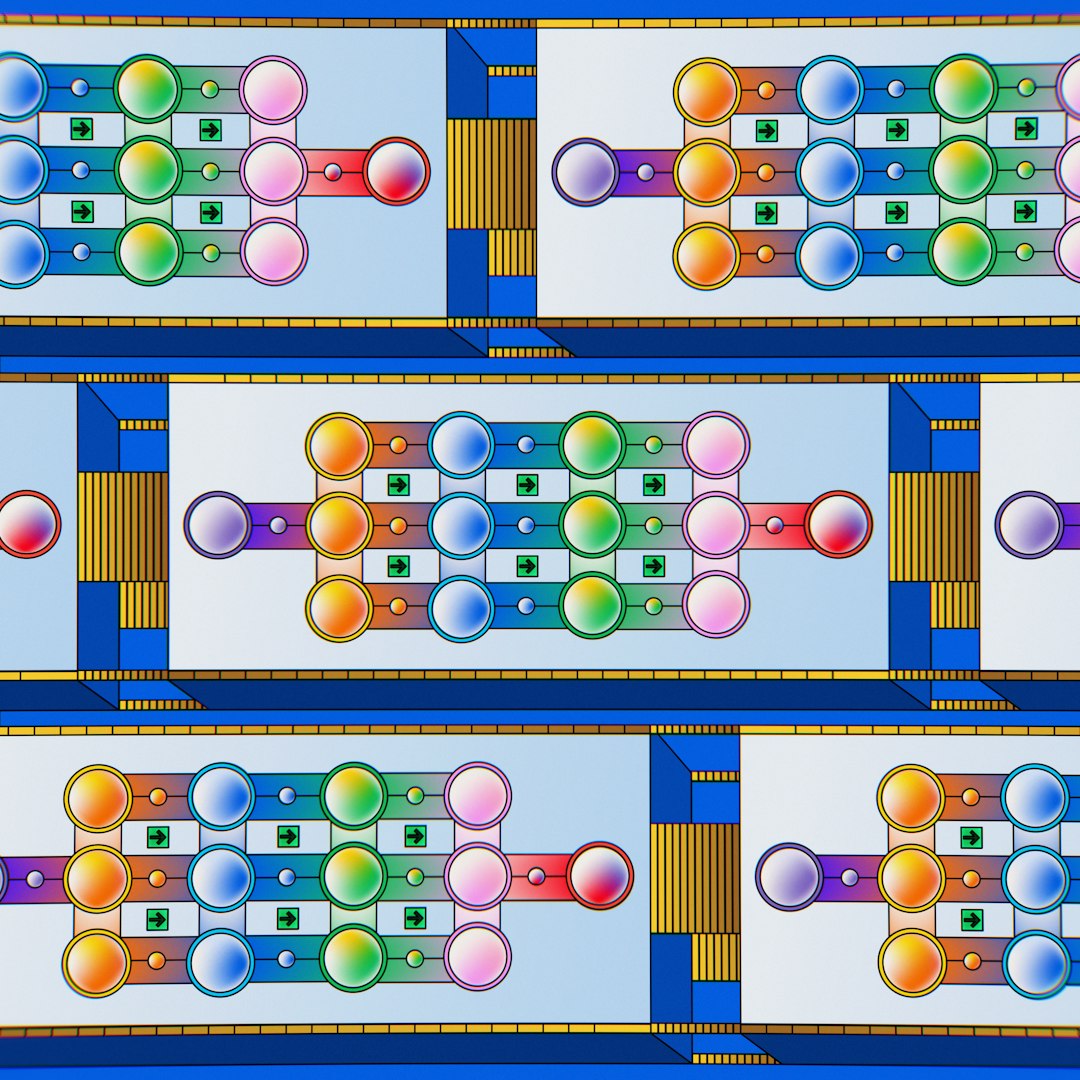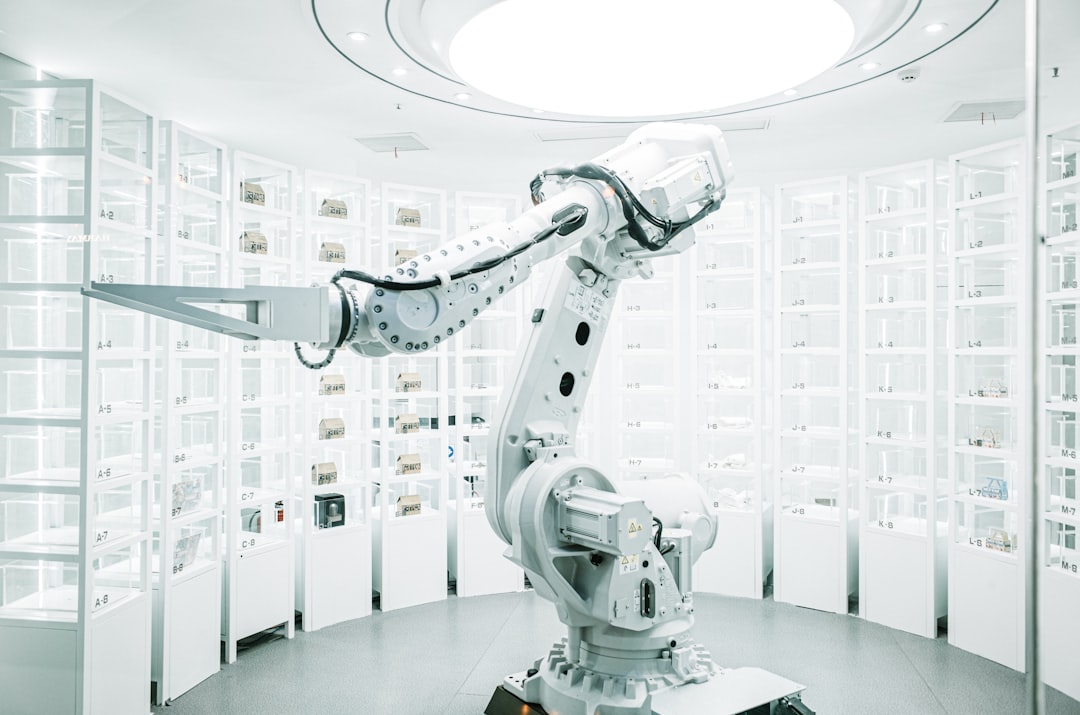Unlock encrypted content
Please enter your SSCE key to initiate on-the-fly decryption.
Decryption key: (Click cancel if you don't have the key)
Copied link to clipboard.
This feature is unavailable for free accounts. Upgrade now and enjoy all Premium benefits.
Go Premium!
This feature is unavailable for free accounts. Upgrade now and enjoy all Premium benefits.
Go Premium!
Please open this page in browser ( Google Chrome or Safari ) to use this feature.
Open In Browser
Cutting-Edge Innovations: Exploring the Exciting World of Augmented Reality, Cyborgs, and Androids
Random related video for this blog.
Copied share link to clipboard.
From augmented reality (AR) to cyborgs and androids, the possibilities seem endless. In this article, we will delve into these exciting advancements and explore their potential impact on various aspects of our lives. Additionally, we will touch upon other groundbreaking technologies such as exoplanets, smart contracts, file encryption, 3D printing, advanced metadata management, and quantum encryption. So, let's embark on this enlightening journey into the realm of futuristic technologies.
Augmented Reality (AR): Bridging the Gap Between Real and Virtual Worlds
Augmented reality (AR) is a technology that overlays digital information onto the real world, enhancing our perception and interaction with our surroundings. By blending virtual elements with the physical environment, AR has the potential to revolutionize various industries, including gaming, education, healthcare, and retail. In the gaming industry, AR has already made significant strides. Games like Pok�mon Go introduced the concept of using AR to catch virtual creatures in real-world locations. This innovative approach not only captivated millions of players but also paved the way for the integration of AR in other gaming genres. Imagine battling virtual monsters in your own neighborhood or exploring ancient ruins through your smartphone's camera lens. Education is another field where AR holds immense promise. By leveraging AR technology, educators can create interactive learning experiences that bring textbooks to life. Students can visualize complex concepts in a more engaging manner, making it easier to grasp and retain information. For instance, anatomy lessons can be transformed by allowing students to virtually dissect a human body, exploring its intricacies in an immersive and interactive way.Cyborgs and Androids: Blurring the Line Between Humans and Machines
The concept of cyborgs and androids has long fascinated humanity, blurring the line between humans and machines. A cyborg, short for cybernetic organism, refers to an organism that combines both biological andartificial components. On the other hand, an android is a humanoid robot that closely resembles a human in appearance and behavior. Cyborg technology has already found applications in the medical field. For instance, prosthetic limbs equipped with advanced sensors and actuators can restore lost functionality to individuals who have suffered amputations. These bionic limbs can be controlled through neural interfaces, allowing users to regain a sense of touch and dexterity. Androids, on the other hand, have the potential to revolutionize various industries, ranging from healthcare to customer service. Picture an android nurse capable of performing routine medical tasks, freeing up healthcare professionals to focus on more critical cases. In the hospitality industry, androids can provide personalized service to guests, ensuring a seamless and efficient experience.
Exoplanets and Habitable Worlds: Expanding Our Cosmic Horizons
As our quest to understand the universe continues, the discovery of exoplanets and habitable worlds has become a focal point of scientific research. Exoplanets are planets that orbit stars outside our solar system, and the search for potentially habitable exoplanets has intensified over the years. The discovery of exoplanets has opened up a world of possibilities for finding extraterrestrial life. By studying the atmospheric composition of these distant worlds, scientists can assess their potential habitability. The presence of water, an essential ingredient for life as we know it, is a crucial factor in determining a planet's habitability. Recent advancements in telescopes and observational techniques have allowed astronomers to detect exoplanets with increasing precision. The Transiting Exoplanet Survey Satellite (TESS), for example, has been instrumental in identifying thousands of exoplanet candidates. These discoveries provide valuable insights into the diversity of planetary systems and the potential for life beyond Earth.Smart Contracts: Revolutionizing Traditional Contracts with Blockchain Technology
Smart contracts have emerged as a transformative technology, revolutionizing traditional contracts by leveraging the power of blockchain technology. A smart contract is a self-executing contract with the terms of the agreement directly written into code. Once the conditions specified in the contract are met, the contract is automatically executed, eliminating the need for intermediaries. One of the most significant advantages of smart contracts is their transparency and immutability. Since smart contracts are stored on a blockchain, every transaction and modification is recorded and cannot be tampered with. This ensures a high level of trust and security, making smart contracts particularly appealing in industries where transparency and accountability are crucial, such as supply chain management and financial services. Smart contracts also offer increased efficiency and cost savings by automating various processes. For example, in the insurance industry, claims processing can be streamlined by using smart contracts. When predefined conditions are met, such as the occurrence of a specific event, the contract can automatically trigger the release of funds to the insured party, eliminating the need for manual verification and approval.File Encryption and Reliability: Safeguarding Data in the Digital Age
In an era where data privacy and security are paramount, file encryption plays a crucial role in safeguarding sensitive information. Encryption involves converting data into a format that can only be read by authorized parties, protecting it from unauthorized access or interception. This ensures that even if data is compromised, it remains unreadable and useless to malicious actors. When it comes to file encryption and reliability, FileLu.com stands out as a trusted and reliable cloud storage provider. With its advanced encryption algorithms, FileLu.com ensures that your files are protected both during transmission and storage. This means that even if your files are intercepted or accessed without authorization, they remain encrypted and inaccessible to anyone without the proper decryption keys. Additionally, FileLu.com offers a range of features that enhance file security and reliability. These include advanced metadata management, which allows you to organize and categorize your files efficiently, making them easier to locate and manage. Furthermore, FileLu.com utilizes quantum encryption, a cutting-edge encryption method that leverages the principles of quantum mechanics to provide unparalleled security. Conclusion As we navigate the ever-changing landscape of technological advancements, it is essential to stay informed about the latest innovations shaping our world. From augmented reality to cyborgs and androids, the possibilities are vast and exciting. Similarly, the exploration of exoplanets, the implementation of smart contracts, and the importance of file encryption all contribute to the transformation of various industries and the way we interact with technology. By embracing these cutting-edge technologies and understanding their potential, we can unlock new opportunities and propel humanity forward. Whether it's the seamless integration of virtual elements into our reality, the merging of humans and machines, the discovery of habitable worlds, the automation of contracts, or the protection of our digital assets, these innovations hold the key to a future filled with endless possibilities.Frequently Asked Questions (FAQs)
Question: What is augmented reality (AR) and how does it work? Answer:
Augmented reality (AR) is a technology that overlays digital information onto the real world, enhancing our perception and interaction with our surroundings. It works by using cameras or sensors to capture the user's environment and then superimposing virtual elements onto it through a device such as a smartphone or smart glasses.
Question: How can smart contracts benefit businesses? Answer:
Smart contracts offer several benefits to businesses, including increased efficiency, cost savings, and enhanced security. By automating contract execution and eliminating intermediaries, businesses can streamline processes, reduce administrative costs, and ensure transparency and accountability through the immutability of blockchain technology.
Question: Why is file encryption important? Answer:
File encryption is essential for protecting sensitive information in the digital age. It ensures that even if data is intercepted or accessed without authorization, it remains unreadable and useless to unauthorized parties. Encryption provides an additional layer of security, safeguarding confidential data from potential breaches or cyberattacks.
Case Study 1: Enhancing Education with Augmented Reality Augmented reality has been successfully implemented in the education sector, transforming traditional learning methods. A case study conducted in a high school demonstrated the effectiveness of using AR to teach complex scientific concepts. Students were able to visualize and interact with virtual models, leading to improved understanding and retention of the material. The study also found that AR increased student engagement and motivation, making learning a more enjoyable experience.
Case Study 2: Secure and Efficient Contract Management A multinational logistics company implemented smart contracts to streamline its contract management process. By automating contract execution and payment processes, the company achieved significant cost savings and reduced the risk of errors or disputes. The transparency and immutability of smart contracts also enhanced trust between the company and its partners, resulting in more efficient collaboration and improved overall supply chain management.
Case Study 3: Protecting Confidential Data with File Encryption A financial services firm recognized the importance of data security and implemented file encryption measures. By encrypting sensitive client information, the firm ensured that even if data was compromised, it would remain unreadable and useless to unauthorized individuals. This proactive approach to data protection not only safeguarded the firm's reputation but also instilled confidence in clients, leading to increased customer trust and loyalty.
By Amelia Isabella
Email: [email protected]
Related
The Future of File Management: Emerging Technologies and Collaborative Video...
May 31, 2023
Read More
Popular
Latest
The Future of Digital Transformation: Exploring Smart Homes, Efficient File...
November 30, 2025
Read More
Exploring the Benefits of Cloud Storage and Innovative Technologies in...
November 26, 2025
Read More
The Future of Technology: Exploring Biohacking, Space Tourism, and Digital...
November 23, 2025
Read More
The Future of File Sharing: Streamlined Workflows for Photographers and...
November 19, 2025
Read More
Exploring the Intersection of Technology: From Cybersecurity to Augmented Reality...
November 16, 2025
Read More
The Future of File Management: Embracing Edge Computing and Efficient...
November 12, 2025
Read More
The Future of File Sharing: Exploring User-Friendly Solutions and Data...
November 5, 2025
Read More
The Future of Cloud Storage: How FileLu Empowers Creative Professionals...
November 2, 2025
Read More
The Future of Autonomous Technologies: Innovations in Robotics, File Sharing,...
October 29, 2025
Read More
Emerging Technologies Revolutionizing File Management: From Li-Fi to Robust Collaboration...
October 26, 2025
Read More
Emerging Technologies: Exploring the Impact of File Access Auditing, Genetic...
October 19, 2025
Read More
The Future of Data Storage: Exploring Advanced Encryption, Mobile Integration,...
October 5, 2025
Read More
Exploring the Future of Data Management: Security, Efficiency, and Cognitive...
September 28, 2025
Read More
Revolutionizing Data Management: Innovations in Storage, Security, and Sustainable Technology.
September 24, 2025
Read More

























